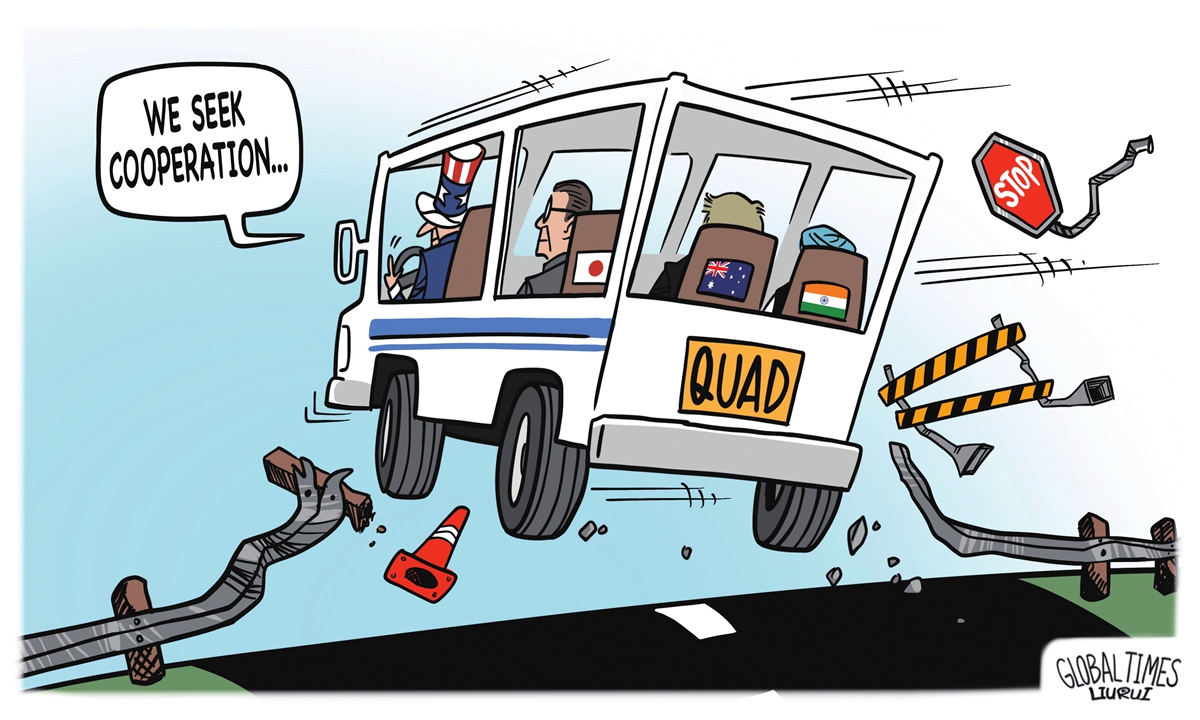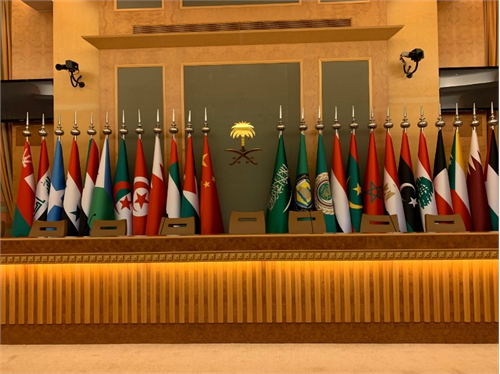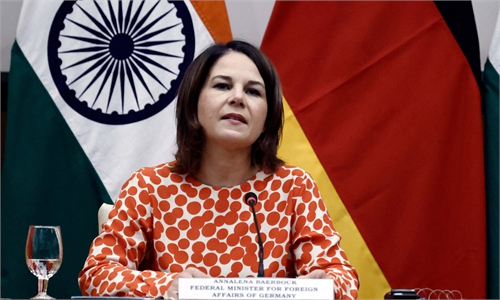
Quad Photo: Liu Rui/GT
Clichéd “China-threat” rhetoric was brought to the gathering of the defense and foreign ministers of Japan and Australia in Tokyo on Friday, and analysts said the meeting, which was held close on the heels of a similar one between US and Australian defense ministers in the US this week, will bring more uncertainties to the region as Australia and Japan vow to strengthen coordination in containing China.
Japan and Australia vowed to bolster security ties, citing “China’s threat” as an excuse as Japanese Foreign Minister Yoshimasa Hayashi and Defense Minister Yasukazu Hamada hosted their Australian counterparts, Penny Wong and Richard Marles, on Friday, in what was the first in-person two-plus-two talks between the two countries since October 2018.
Japanese Prime Minister Fumio Kishida also met with the ministers on Friday. The Japanese Foreign Ministry said that they shared the view that Japan and Australia need to “lead efforts toward the realization of a free and open Indo-Pacific," referring to a vision that Japan has been promoting along with the US to counter China, Japanese media reported.
The Friday talks, which followed a similar meeting in Washington between US and Australian defense and foreign ministers, aimed to put the consensus reached in Washington into action and further assign missions for Japan and Australia, two spearheads of the US in pushing its Indo-Pacific Strategy, Chen Hong, director of the Australian Studies Center at East China Normal University, told the Global Times.
The "2+2" ministerial consultations between the US and Australia were held on Tuesday, and the two countries agreed to increase the rotational presence of US forces in Australia and to "invite Japan to integrate into our force posture initiatives in Australia," media reported.
The US and Australia referred to Japan with the purpose of emphasizing coordination between Japan and Australia, particularly in their militaries, and they also wanted to bring Japan into their military cooperation, particularly in joint drills to better prepare for any military clashes in the Indo-Pacific area, Chen said.
In recent years, Australia and Japan have worked to strengthen their cooperation. For example, in October, Japan and Australia signed a new bilateral security agreement covering military, intelligence, cybersecurity and space cooperation, a move that experts said shows the two countries' willingness to be pawns of the US, while threatening regional peace and security.
Chen said that no matter how loud Japan and Australia tout a “free” Indo-Pacific, the two countries are actually trying to join forces and exert their influence in Southeast Asian and Pacific Island countries to help the US contain China and stir up trouble in the region, for example, in the South China Sea or on the Taiwan question.
Chen noted that there will be more interactions between Australia and Japan in the coming year, as the two have become a de facto military alliance after signing a Reciprocal Access Agreement. It is also possible that Japan will join the Five Eyes Alliance, an intelligence grouping comprising Australia, Canada, New Zealand, the UK and the US, and AUKUS, the trilateral security pact between the US, UK and Australia.
Australian Defense Minister Richard Marles said in a speech in Tokyo that Australia will push for Japan to be included as a quasi fourth member of AUKUS as it seeks to elevate its partnership with Tokyo to unprecedented heights, media reported.
The Australian government has combined adventurism with opportunism and chosen to defend US hegemony at the cost of its own national interests and security, which reveals its lack of prudence and political wisdom, said Chen.
Analysts also warned that Japan is using cooperation with Australia and other countries to seek to lift its military restrictions, while the rise of conservative forces in Japan and the Japanese government’s hyping of the Taiwan question have also alarmed many Asian countries.
A small group of countries are using “free” and “open” as excuses to stir up confrontations and clashes, severely threatening the hard-won peace in Asia, Chinese Ambassador to Japan Kong Xuanyou said in a forum on Thursday, calling on Japan to maintain strategic independence to make the right choice and defend the overall and long-term interests in Asia.



